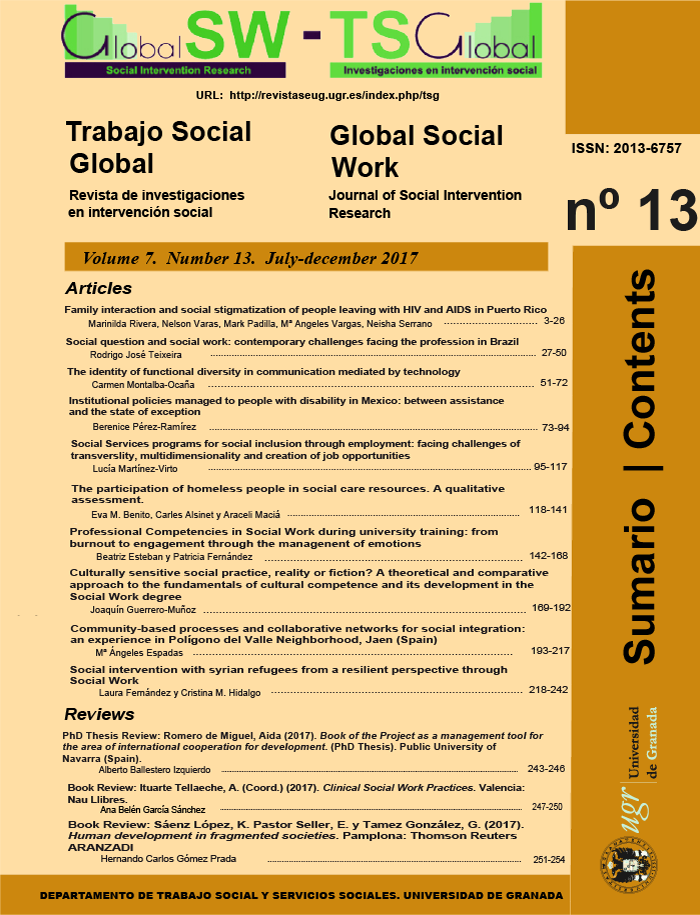The identity of functional diversity in communication mediated by technology
DOI:
https://doi.org/10.30827/tsg-gsw.v7i13.5701Keywords:
Alternative communication systems, humanity-technology, disability and cyborg metaphorAbstract
The subject matter of the research presented below gravitates on the ontological change imposed by technology in humans. In particular, development of assistive technologies applied to alternative communication systems represents an interesting example of how this technology works on the social relationships, communication, and how this mediation modifies the self-image and social image of the users. This study focuses on people with cerebral palsy or neuronal degenerative disease and the identity transformation suffering to be able to communicate with autonomous tech support. In this way, the hypotheses to be faced in this study are: technology (paradoxically) humanizes.
Downloads
References
Alonso, L. E. (1998). La mirada cualitativa en sociología. Madrid: Fundamentos.
Allué, M. (2003). Discapacitados. La reivindicación de la igualdad en la diferencia. Barcelona: Bellaterra.
Gergen, K. J. (1997). El Yo Saturado. Dilemas de la identidad en el mundo contemporáneo. Barcelona: Paidós Contextos.
Haraway, D. J. (1995). Ciencia, ciborgs y mujeres. La reinvención de la naturaleza. Madrid: Cátedra.
Pérez de Lara, N. (1998). La capacidad de ser sujeto: más allá de las técnicas en la Educación Especial. Barcelona: Laertes.
Watzlawick, P.; Beavin, J. y Jackson, D. (1981). Teoría de la comunicación humana. Interacciones, patologías y paradojas. Barcelona: Herder
Downloads
Published
How to Cite
Issue
Section
License
Authors publishing in this journal agree to the following terms:
- Authors retain their copyright. They guarantee to this journal the right to a first publication of the work submitted to initiate the editorial process.
- Authors know that their work is published under a Creative Commons License which allows others to share it, with a recognition of the work's authorship and its initial publication in this journal.
- Authors share with Global Social Work explotation rights of the work that has been published in this journal, authorizing the execution of a free reproduction, distribution and public communication. Authors know that their work will be stored on servers and reproduced in digital format for inclusion in institutional repositories and databases that will facilitates free access to the full text of the work.
- Authors may distribute the version of the work published in this journal (for example, to an institutional repository or publish it in a book), with the explicit acknowledgment of its initial publication in this journal.
Copyright on the texts published in Trabajo Social Global -Global Social Work, as well as editorial policy of the journal refering to self-file and deposit in institutional or thematic repositories, are identified in the database





















